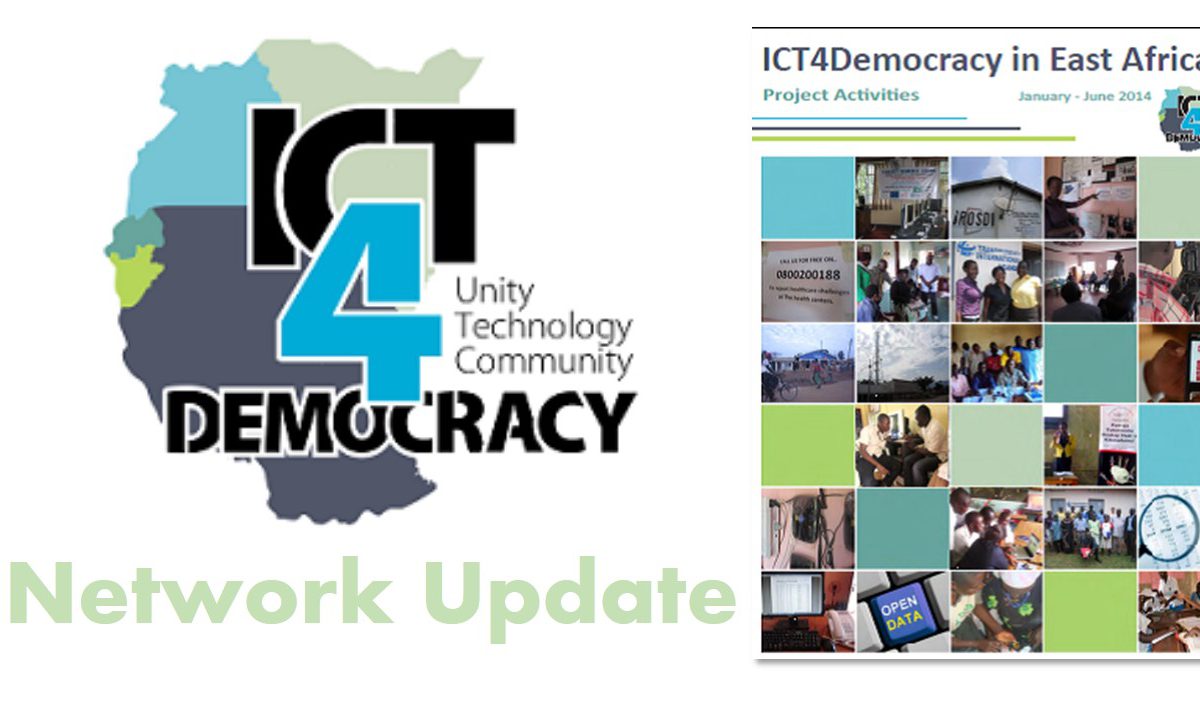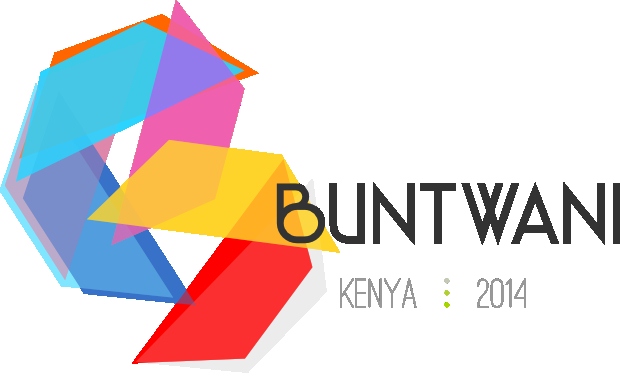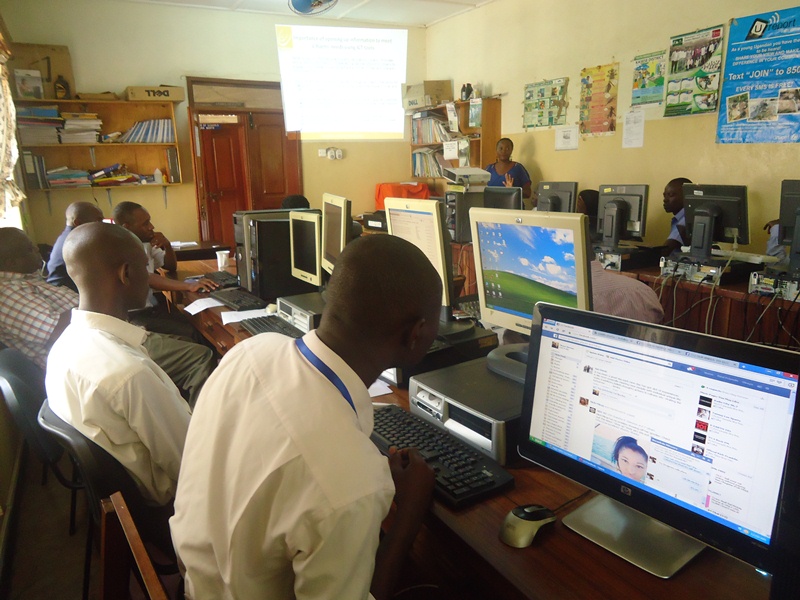By Juliet N. Nanfuka
The network of seven partners (profiles) unified under the ICT4Democracy in East Africa initiative have since 2011 jointly worked to enhance the capacity of citizens and governments in using ICTs to promote human rights, good governance and citizen participation.
Between January and June 2014, the partners each undertook activities that aimed to support the inclusivity of citizens in transparency,

accountability and service delivery monitoring through the use of Information and Communication Technologies (ICTs) in Kenya, Tanzania and Uganda. These activities are increasing citizens’ participation in decision-making processes and strengthening democracy in the region.
The partners have each created unique approaches to encouraging citizen participation through mobile short message services (SMS), FM radio, social media such as Facebook and Twitter, crowd-mapping platforms and a toll free call centre. Research has also been conducted by some partners on the knowledge and perceptions associated with ICT use and the flow of information between and among citizens and government.
As part of the projects, partners have pursued direct community engagement with grassroots based organisations, local governments, media, policy makers, voluntary social accountability committees (VSACs), academia, the tech community, and civil society organisations in the use and promotion of ICTs in governance.
In brief, some of the activities pursued by the partners include the below:
- In Western Uganda the Toro Development Network (ToroDev) has engaged with various stakeholders and also utilised radio and social media to inform and encourage participation in service delivery monitoring and accountability.
- The Kenya Human Rights Commission (KHRC) tapped into its existing community of Human Rights Networks (HURINETS) to advocate for open governance, and the right to information.
- iHub Research is conducting research into the flow of information between citizens and government through ICT tools in a bid to understand whether the interaction supports service delivery, access to information, and combating corruptions – and how these interactions can be improved upon.
- The Collaboration on International ICT Policy in East and Southern Africa (CIPESA) has combined research, capacity building and advocacy on the roles that citizens, media and public officials can play in the pursuit of good governance.
- The Ugandan Chapter of Transparency International is supporting communities in northern Uganda to report and act on shortcomings in the public health services delivery. This has been accomplished through provision of a toll free line, social media campaigns and working with Voluntary Accountability Committees (VACs).
- Women of Uganda Network (WOUGNET) is working with Community Based Organisations (CBOs) and Voluntary Social Accountability Committees (VSACs) to empower women in the use of ICTs that can enable them to play a part in service delivery monitoring in northern Uganda.
- In Tanzania, the Commission for Human Rights and Good Governance (CHRAGG) is educating citizens on human rights and empowering them to use their phones to report human rights violations.
For more details, please see the full activity report of ICT4Democracy in East Africa network between January and June 2014.
CIPESA is the ICT4Decmoracy in East Africa Regional Coordinator






